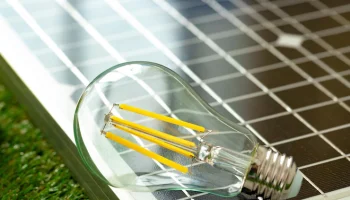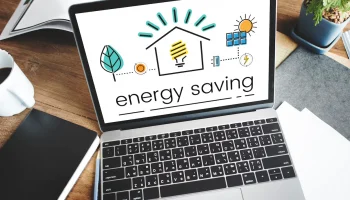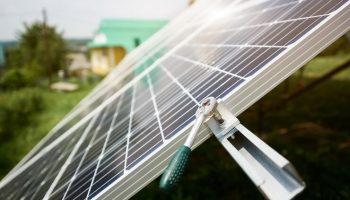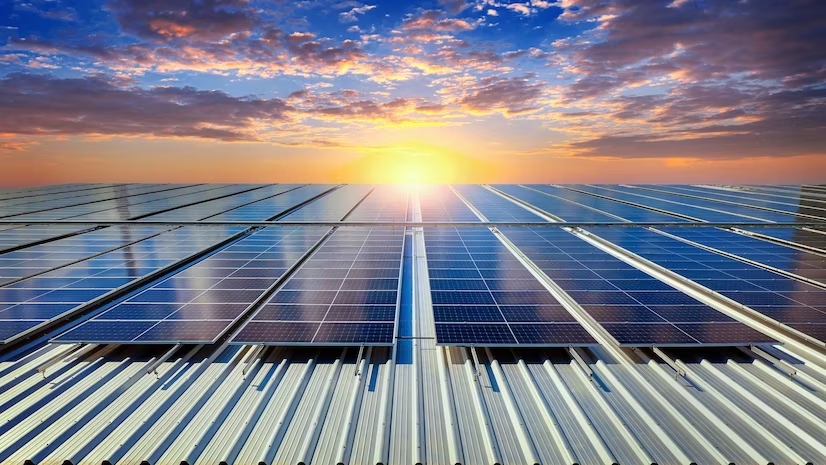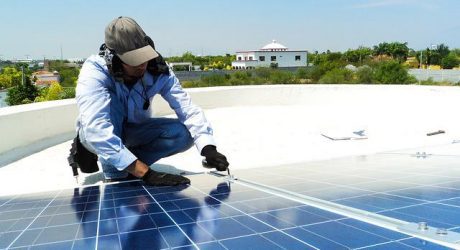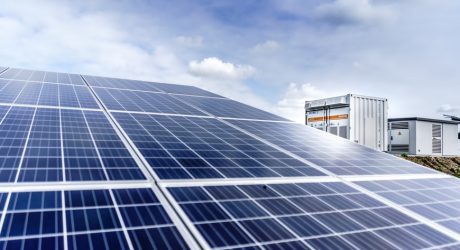Solar roof panels on a house next door! I want those, too! That probably sounds familiar to you, isn’t it?
But have you considered that maybe you don’t have room for a solar system on your property? Or perhaps your business needs commercial energy more?
In this post, we’ll break down everything you need to know about commercial and residential solar panels so you can choose the best option for your application. Let’s get into it!
Difference Between Commercial And Residential Solar Panels

There are many key differences between commercial and residential solar panels and understanding them will help you make an informed decision.
1. Commercial Solar Panels
These are used in large-scale applications such as commercial buildings and large-scale solar farms. They are often made up of multiple PV cells to effectively increase the amount of energy produced.
Additionally, the captured energy is either used directly or stored in batteries or other energy storage devices. Depending on the use, these panels last up to twenty-five years and require minimal maintenance.
2. Residential Solar Panels
These are usually mounted to the roof of a home and generally require little or no maintenance. The panels are highly efficient and can provide enough energy to cover the majority of a home’s electricity needs.
They are an excellent investment for any homeowner looking to:
- Reduce their energy bills
- Combat climate change
- Be part of a more sustainable future
Residential solar panels can be connected to the existing electrical grid or as a standalone system.
3. Assessing Roof Structure and Location
First and foremost, the size of the panels used is important. Depending on the size of the property and the amount of energy needed, panels of various sizes can be employed.
Furthermore, it is important to take into account the orientation of the panels. To maximize energy production, solar panels should be placed on the south-facing or western-facing side of a house.
Additionally, when selecting a location, you have to consider if the roof is suitable for sunlight exposure. Lastly, an inspection should be conducted to ensure that the roof has no risk of exposure to inclement weather.
4. Exploring Solar Incentives And Tax Credits
Investing in solar power can save you money in form of federal and state tax incentives. These can vary from state to state, but a few common incentives include:
- Solar investment tax credit
- Solar renewable energy credits
- Solar production reimbursement payments
When seeking solar financial aid, it’s crucial to look into both federal and state-level incentives. Depending on the specifics of your state’s incentive programs, you may find that you could be eligible for generous rebates.
5. Factoring In Maintenance And Repair Costs
Solar panels require frequent cleaning as dirt affects how efficiently they capture energy from the sun. They should also be inspected at least once per year to check for any damage.
It’s also important to look for any vegetation encroaching on the panels as this reduces their efficiency. Regular maintenance is key to ensuring your solar panels last a long time.
However, the initial installation cost is usually high, but it may be offset with federal or state tax credits or rebates.
Key Features To Look For When Choosing A Solar Panel

Solar panels are a good investment due to their long lifespan and ability to reduce energy bills. When buying solar panels, it’s important to look out for these key features:
A. Performance and Energy Production
Commercial solar panels tend to have a great life span due to their higher quality materials. On the other hand, residential solar panels have a smaller life span due to their lower-grade materials. However, they are still very efficient in producing energy.
Ultimately, both panels offer great performance and energy production with their benefits.
B. Installation and Warranty
A higher-end solar panel may have a longer warranty, while a more typical panel may have a shorter bond. Furthermore, the type of installation may affect the warranty as well, whether it is done professionally or DIY.
So it is important to understand the manufacturer’s warranty associated with the products you purchase, as well as any available after-market guarantees.
C. Efficiency or Adaptability
The efficiency of these panels relates to the amount of energy they can produce relative to their size. Generally, the more efficient the panel, the higher the cost.
Solar panels are also designed to be adaptable to best take advantage of the available sunlight. Understanding this feature beyond the brand name is critical when making a cost/benefit analysis of a solar installation project.
Related: Thinking Of Making The Switch? Explore The Benefits Of Solar Panels
D. Size and Weight
Residential solar panels are equipped to be lightweight and are perfect for rooftops. Generally, they measure between:
- 65 and 79 inches in length
- 39 and 41 inches in width
- 34 to 44 inches in depth
For commercial buildings, the dimensions of solar panels are much greater and the average weight reaches 152 lbs. Knowing these size and weight differences is key in selecting the right solar panel for the job.
E. Maximum Power Output
In terms of maximum power output, it varies for both commercial and residential customers. Normally, commercial panels have larger power outputs, capable of producing several megawatts of electricity over an entire day.
Meanwhile, residential ones range from 1.2-3.3 kw output per day, depending on size and efficiency. Ultimately, commercial panels often require larger upfront investments than residential systems.
F. Choosing the Right Solar Panel Installation Professional
To ensure the best results, you should look for an installer with prior experience in both types of installations. They should have the proper licenses and permits in place.
In addition, you have to pay attention to communication and customer service. Look for an installer who explains the process and available options in plain language.
This will allow you to review their proposed contract and is easy to contact with any questions or concerns.
G. Identifying Your Household’s Solar Panel Needs
To determine which type of system is best for your home you must first identify your household’s needs. Factors such as electricity usage can also be taken into account.
Once you understand your solar panel needs and budget, you can research and compare different solar products and choose the best system for you and your family.
A Guide To Solar Home Energy Management
Solar power is an increasingly viable option for commercial and residential use. Installation costs are on the decline as their economic benefits, including energy bill savings and incentives, make them an option worth exploring.
For more information, contact your local provider to explore the potential of commercial and residential solar panels today!
Did you find this article helpful? Check out the rest of our blog now!
Read Also:











